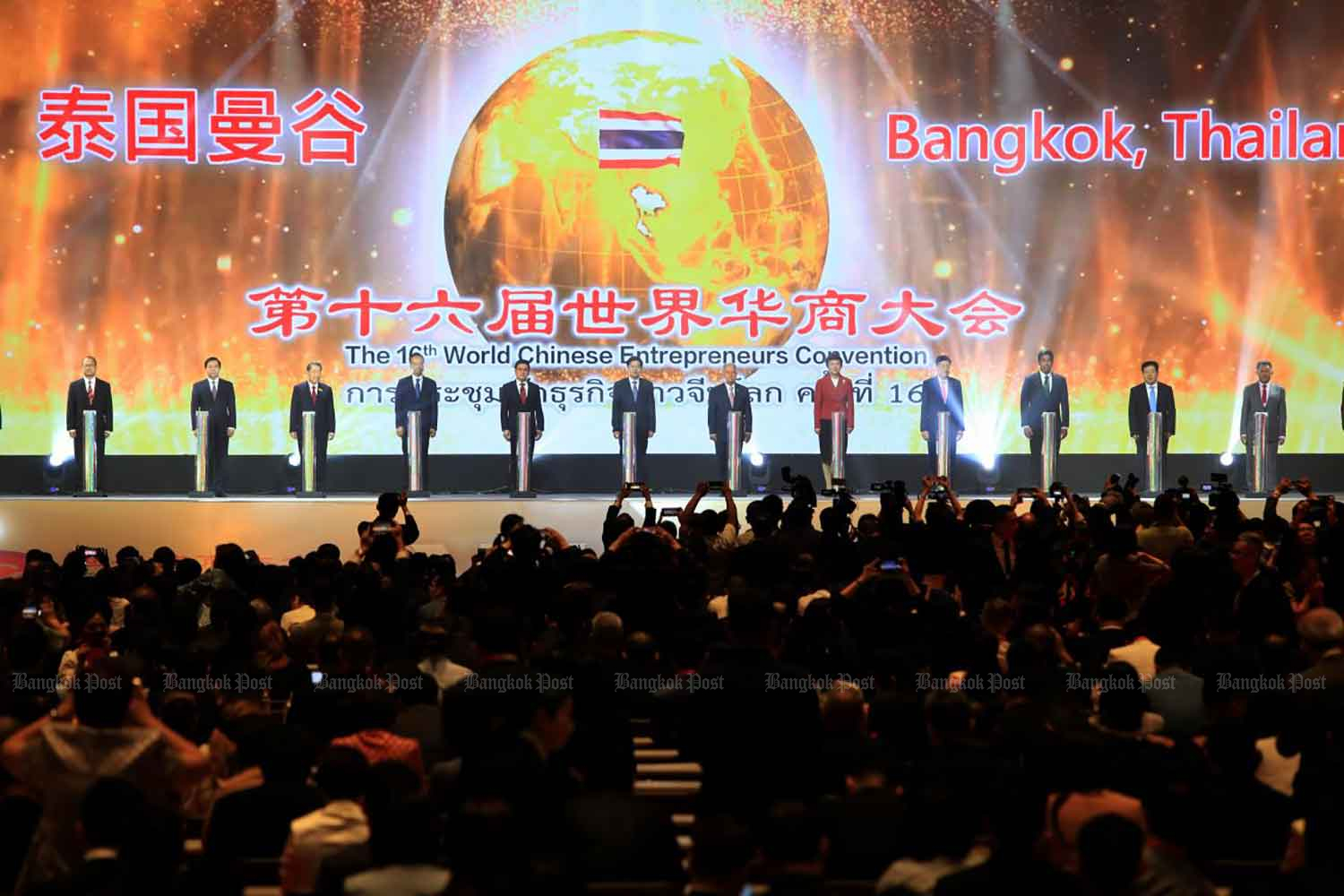
Bilateral trade ties with China will continue to deepen but the new government must strive to remain neutral in any US-China conflict, according to the president of the Thai-Chinese Chamber of Commerce (TCCC).
In an interview with the Bangkok Post, TCCC president Narongsak Puttapornmongkol said the Chinese economy might experience a hiccup during the ongoing conflict with the United States but the situation can also create opportunities for Thailand.
Mr Narongsak said he encourages Chinese enterprises that export to the US or Europe to expand their investment in Thailand so they can use materials in the kingdom to produce their goods. Many firms are enthusiastic about relocating to Thailand, he said.
Furthermore, some US firms are looking for new places to set up manufacturing bases, especially in Asia. Thailand should harness the opportunity, he said.
Mr Narongsak said Thailand enjoys close ties with China while Thailand and the US have always been good allies. He believes the new government led by Srettha Thavisin will help balance the power of the two global leaders and maintain positive trade ties with both. Thailand should remain neutral in their conflict, he said.
"From an economic perspective, Thailand should find opportunities in the [US-China] crisis so we can have access to larger markets," Mr Narongsak said.
Thailand may have a relatively small production capacity but when Chinese firms invest in the country, that will rise, he said.
Asked if Thailand would benefit if Chinese companies invest here but repatriate all their earnings, he said Thailand has laws that must be enforced. For example, foreign companies that have a business in Thailand must let Thai shareholders control at least 51% of their company.
They also need to pay, except those granted tax incentives from the Board of Investment or the Eastern Economic Corridor.
"There is no need to be overly concerned because any business needs to pay tax. In addition, when authorities strictly enforce laws, it scares away shady Chinese businesses from coming to Thailand," he said.
The trade deficit with China is not a big issue because Thailand can use imported materials from China to produce goods and later export them to other countries.
Mr Narongsak also referred to Thai firms that want to invest in China, saying the Chinese government has special economic zones (SEZ) to welcome foreign investors such as SEZs in Hainan and Zhuhai.
He suggested investing in businesses that Thailand is known for, such as the food industry. If a Thai company can sell even one product in China, it would open a huge potential market because of its 1.4 billion population.
He also praised the government for launching a visa-exception scheme for Chinese nationals. The policy is timely as it was launched before Chinese National Day on Oct 1, which is a marked with a week-long holiday.
Mr Narongsak said the government should expedite its high-speed railway project as it has some missing segments that would link it to the China-Laos high-speed railway project built under China's Belt and Road Initiative.
"The high-speed project may not be finished in the term of the Srettha government. But the government should speed up a double-track railway project and urgently complete the 160km segment from Khon Kaen to Nong Khai, on the border to Laos, to improve the country's logistics crossing from Laos to China," he said.
Mr Narongsak said the dual-track railway system will enable passenger trains to run faster at a maximum speed of 110km per hour. Trains will not have to change tracks -- an inconvenience of the present single railway system -- while a cargo train can run at 70km/h.
The dual track railway system will allow trains to run at speeds almost on par with the average speed of 160km/h marked by the China-Laos high-speed train, he said.
He also suggested the government consider opening the customs service in Nong Khai and other border checkpoints around the clock, as well as providing a one-stop service to ease cross-border trade.
This step could be completed within a year, while waiting for the dual-track railway system to be finished, he said.
"I had a chance to talk with the premier and asked him to extend the working hours along the borders as Thailand would earn more income from collecting fees from land and sea freight," he said.
Mr Narongsak said the relationship between Thailand and China has improved, especially after Chinese President Xi Jinping paid courtesy calls to His Majesty the King and then Prime Minister Prayut Chan-o-cha last year.
More Chinese business operators, particularly those in northern China, are aware of the advantages Thailand offers after the TCCC held the World Chinese Entrepreneurs Convention for overseas Chinese entrepreneurs in June.
The event attracted more than 4,000 Chinese businesspeople from 50 countries.
Thailand should also offer an attractive investment policy to compete with neighbouring countries, such as Vietnam, Indonesia, Cambodia and Malaysia.
"We should let Chinese investors know that they may invest in other countries but Thailand is the best because our country is stable and safe," Mr Narongsak said.